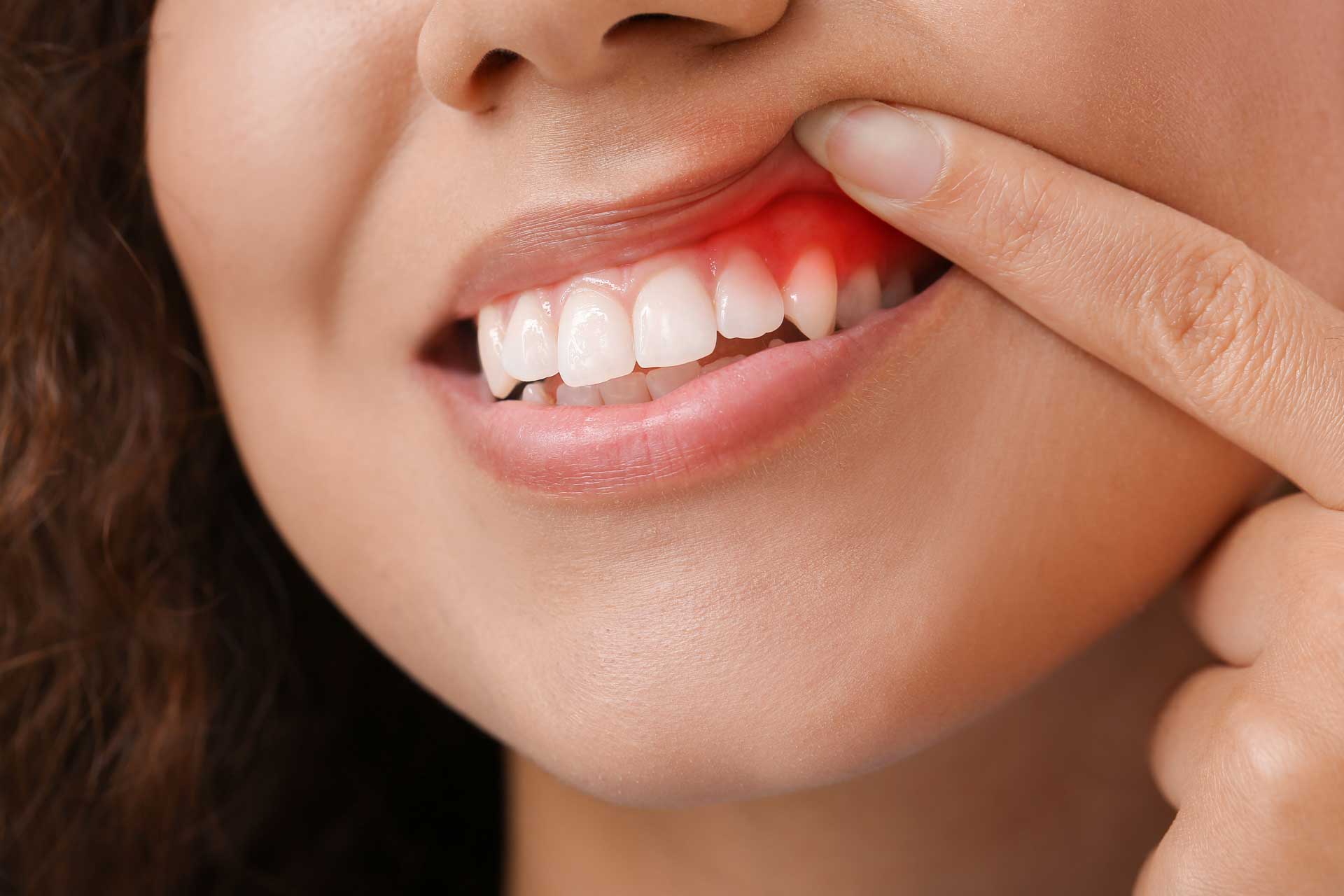
Periodontics (periodontology) is a dental specialty. This part of dentistry looks for, diagnoses, and treats problems with the structures that support the teeth (periodontium). These problems include bone loss, gum recession, and periodontal disease. A periodontist is a person who specializes in using periodontics to treat diseases of the gums and bones around the teeth. They work mostly on the gums and the bone that holds the teeth in place.
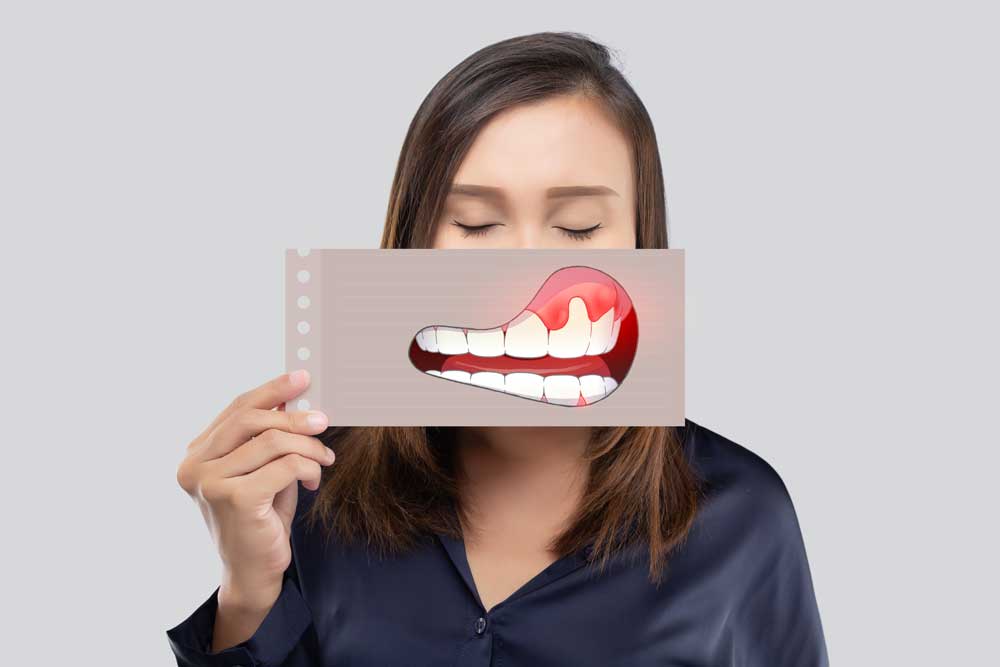
Periodontal disease (gum disease) is when the gums become sore, swollen, or infected. Plaque (containing bacteria) is the reason for gum disease. Plaque makes toxins and acids. Removing plaque from your teeth by brushing them stops plaque buildup and stops irritating your gums, leading to redness, swelling and soreness.
It is the mildest kind of gum disease that can lead to gums that are red, swollen, and prone to bleeding. It could also leave your breath smelling awful. Gingivitis describes this stage of gum disease. Most people with this illness don’t experience any pain at all. However, neglecting oral hygiene is the primary cause of gum disease. Treatment options for gingivitis include both in-office procedures and at-home oral hygiene regimens.
Pale pink colour and firmness characterize healthy gums. Many people do not realize that gingivitis is present or that they have a problem because it is usually not painful. Symptoms Include:
The risk factors for getting gingivitis include aging, puberty, pregnancy, hormonal changes, smoking, drug use, stress, poor diet, diabetes, HIV, and other systemic illnesses or conditions. Some drugs can also raise the risk of gingivitis.
Periodontics recommend practicing proper oral hygiene, such as flossing your teeth at least once a day and brushing them twice daily. Professional cleaning is recommended every six months. If symptoms are bad, you may need brushing and flossing after every meal and before bed. You may also be suggested plaque-removal devices, such as toothpicks, special toothbrushes and water irrigation tools. Prescribed anti-plaque and anti-tartar kinds of toothpaste and rinses can also help.
Gingivitis usually recovers after a professional cleaning if good oral hygiene is continued at home. Over-The-Counter or prescription mouthwashes can help to keep the amount of plaque to an acceptable level. However, if the patient is not diligent with their home care and does not seek professional cleanings at least twice per year, the condition will return quickly.
If the gingivitis is unbearable and deep dental calculus is present, up to four deep cleanings (scaling and root planning) may be needed to get the gingival tissue back to health. Scaling is the process of clearing plaque and tartar from teeth.
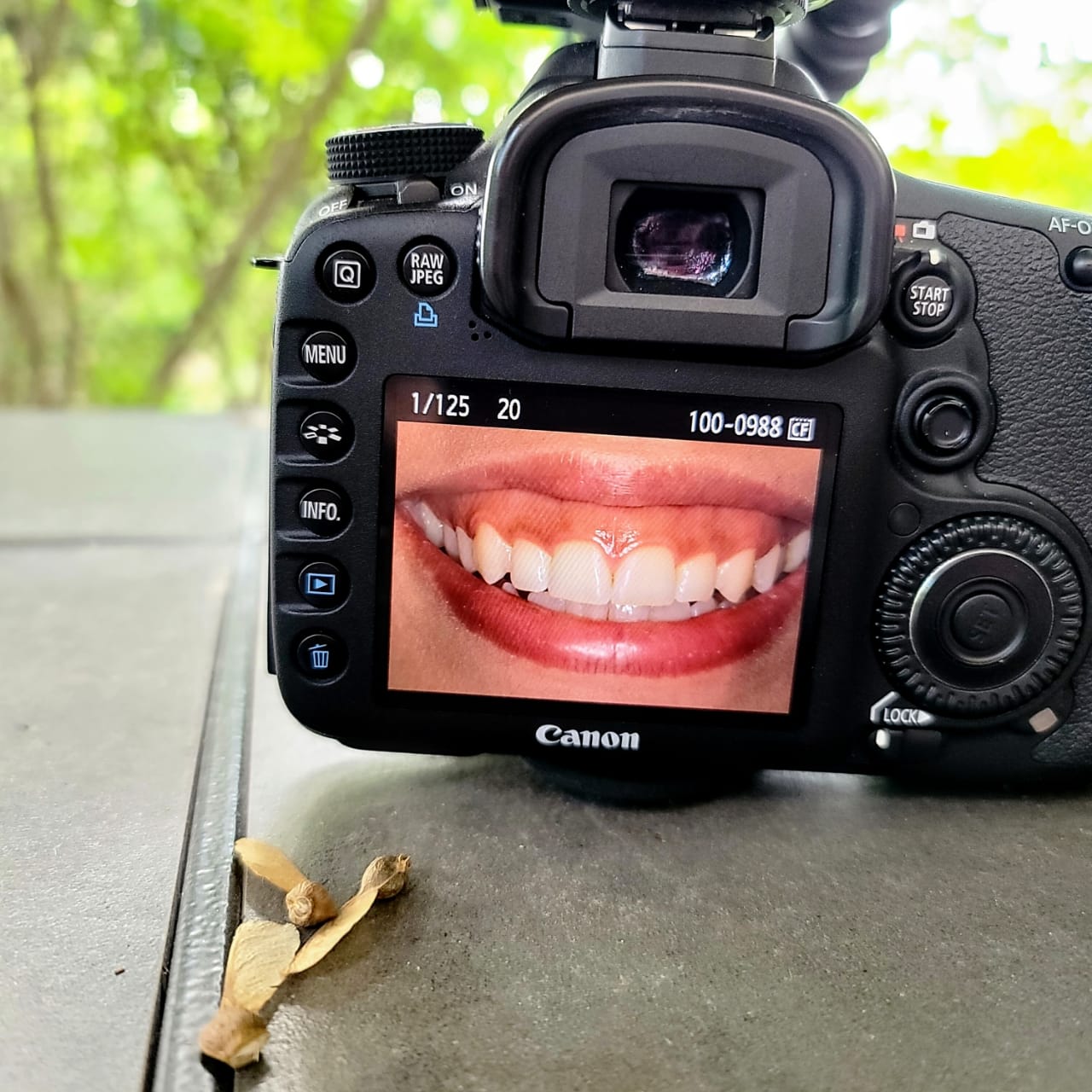
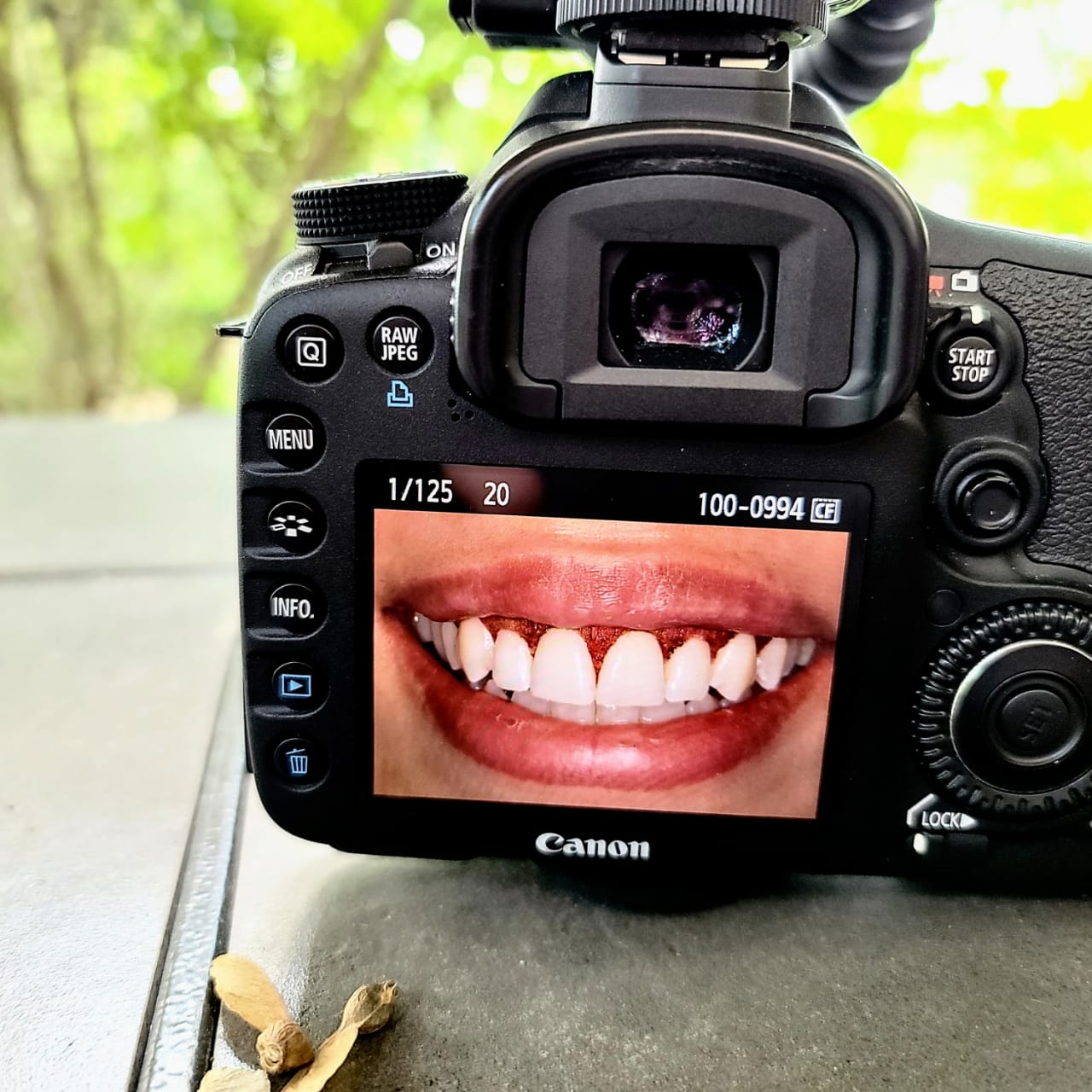
Gingivitis can grow into periodontitis if left untreated. With time, plaque can extend and grow below the gum line, and toxins created by the bacteria in plaque irritate the gums. Therefore, the toxins stimulate a chronic inflammatory response, affecting the tissues that hold teeth in place and support them. If periodontitis is left untreated, your jawbone can break down, building spaces between the teeth and gums. Your teeth may become lax and fall out eventually. The most common forms of periodontitis include the following:
Every following change can be a symptom:
Just because you have a hereditary predisposition to gum disease does not guarantee that you will get it. Maintaining proper dental hygiene can prevent or control it, especially in people who are more vulnerable.
Smoking boosts the risk of periodontal disease. If periodontal disease is present, smoking drives it more severe. It also is resistant to treatment. Quitting smoking can play a significant role in bringing periodontal disease under control.
Anything that makes it more difficult to brush or floss your teeth can enhance plaque and tartar formation above and below the gum line, which boosts your chance of developing gum disease. Your periodontist might recommend orthodontics to straighten your smile and give you a better chance of precluding disease.
These habits won’t cause periodontal disease, but they can render the breakdown of the periodontal ligament and bone. Your periodontist can create a custom guard appliance that helps recede the pressure of clenching or grinding on the teeth.
Stress can deteriorate periodontal disease and make it harder to treat because it weakens your body’s immune system.
Changes can occur in the mouth whenever hormones fluctuate, such as during puberty, pregnancy, and menopause.
Several medications can cause dry mouth, and plaque is more likely to shape without the protection of adequate amounts of Saliva. Some other medications may cause the gums to enlarge, making them more likely to trap plaque.
Certain diseases such as diabetes, inflammatory bowel disease, leukemia, and HIV infection can increase susceptibility to periodontal diseases. A good periodontist should be able to offer the kind of guidance needed to preserve your periodontal health.
Nutrition is vital for overall good health, including a working immune system and healthy gums and mouth.
According to the research, there are both non-surgical and surgical treatments for periodontitis, depending on its severity. Non-surgical treatments include:
Common surgical treatments are the following:
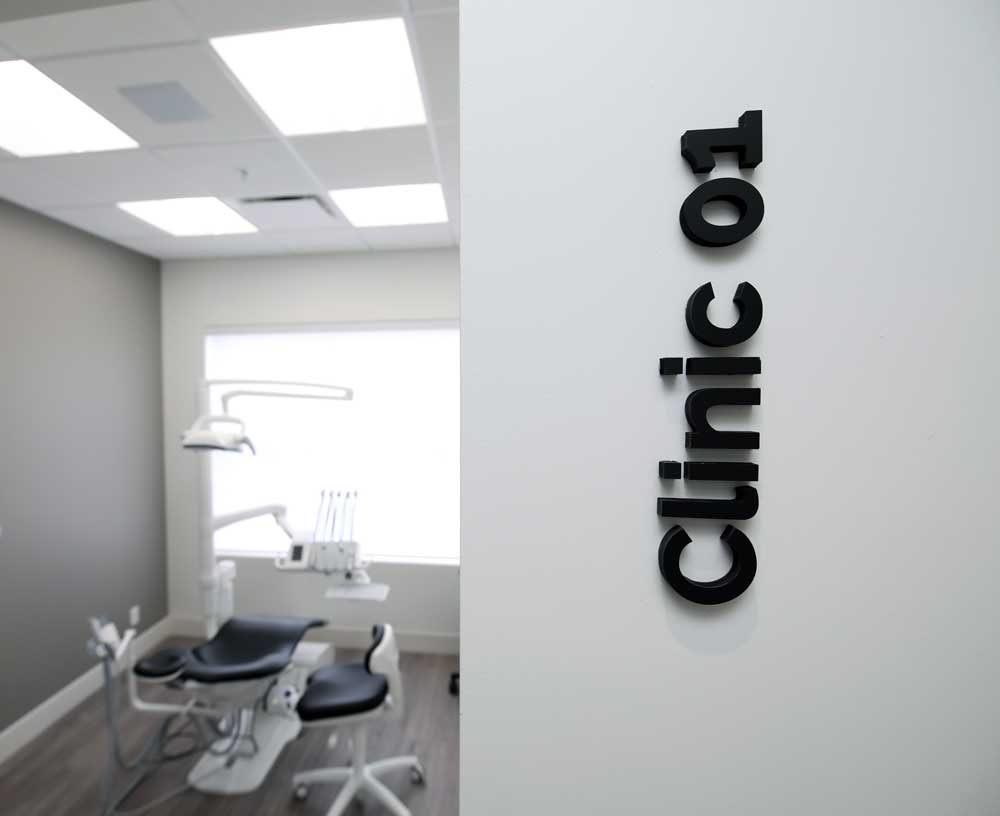
What we value most here is creating a convenient, efficient, and safe environment. ORIS Dental Clinics, located in Richmond Hill, Ontario, uses modern and up-to-date materials to make your visits safer and easier. We guarantee we make a pleasant experience for you. Your dentist may refer you to our clinic by filling out our secure online periodontics referral form.